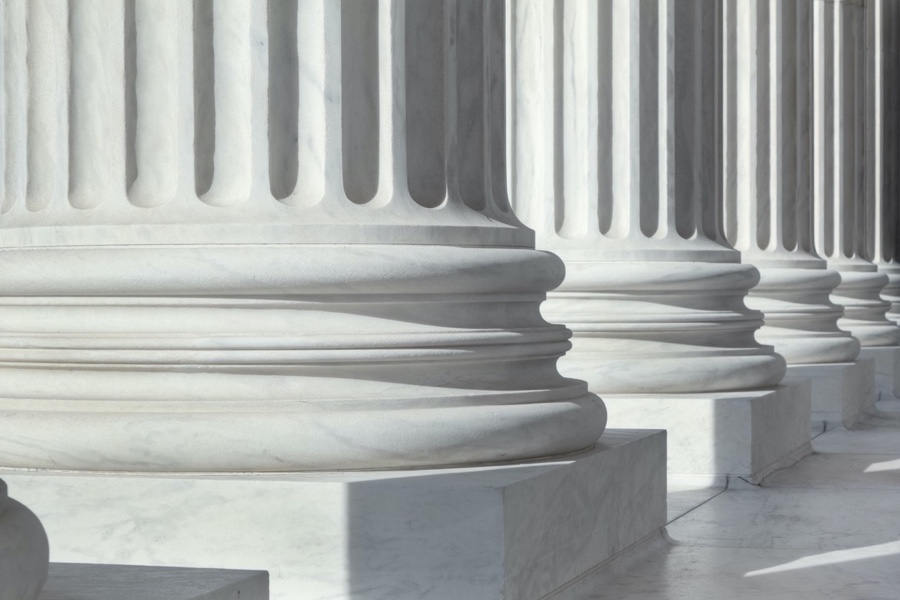
Want To Be An Electoral College Member? … Courage Required
The great Yogi Berra said, “It ain’t over ‘til it’s over.” The only votes that determine the election will be cast on December 14, 2020 by the Electoral College.
We are curious about the heady responsibility of the Electors (members of the Electoral College) and wonder what might happen if they applied the guiding principles offered by our Founding Fathers. Since Alexander Hamilton, James Madison and others brilliantly designed our beloved and valued Constitution, we decided to learn more about their concerns and intentions leading to the design of this mysterious Electoral Process by digging into Article 2 of the Constitution, and The Federalist Papers: No. 68, and No. 10. In plain terms, here’s what we learned.
What motivated Alexander Hamilton and James Madison to persuasively argue for the creation of the Electoral process?
They sought to prevent the American population from unwittingly electing unqualified candidates who would potentially undermine the Republic. In so doing they charged the Electors with the responsibility to apply their independent judgment and vote their conscience in alignment with specific guiding principles without being beholden to any presidential candidate.
We might safely assume that it would take quite a bit of courage for an Elector to vote without being beholden to a candidate of their specific party. And yet, that’s exactly why the Founders called on the Electoral College not to be a direct reflection of the people or the party, but rather to exercise judgment to avoid the dangers predicted by the Founders and outlined in the referenced Federalist Papers. If ‘judgment’ wasn’t to be used, and Electors were not to act courageously guided by the Founders’ principles, then they would simply be checking a box and the Electoral College would really serve no purpose.
What principles are we talking about and where to do they come from?
In the Federalist Papers, mainly Nos.10 and 68, Madison and Hamilton set forth a blueprint for the purpose and duty of the Electors. They eloquently describe the potential dangers that could undermine the Republic should an unqualified candidate rise through “low intrigue”, “little acts of popularity” and “a desire of foreign powers to gain an improper ascendant in our councils.”
In other words, a candidate who may:
- Engage in demagoguery,
- Rely on celebrity and manipulation to garner popularity among the masses, and
- Be one who has foreign interests and is susceptible to foreign influence.
Madison also lays out a principle that essentially discusses placing personal or personal community interest above the nations citizens.
What power do the Electors really have?
All of it! Once the Electors issue 270 votes for a candidate, Congress certifies the choice of the Electors. If no candidate receives 270 electoral votes, the House of Representatives selects the President, with each state delegation casting one vote. The Senate would elect the Vice President, with one vote for each Senator.
How do Electors decide which way to cast their vote?
In modern times, Electors have typically voted along party lines based on the popular vote of their state. However, if the Electors simply vote along party lines, and do not filter their decision through the tests provided by Hamilton and Madison, they do not serve the purpose of having an Electoral Process to safeguard, protect, and insure the long-term viability of the Republic.
The Founding Fathers wanted this group of representatives (made up of everyday people) to have a period of reflection, perhaps even struggle, to reconcile the people’s choice with their (the electors) own personal judgement and conscience as guided by the Founders’ principles.
As Leadership Coaches, what intrigues us is the process of evaluating the difficult burden that the Electors bear and how we as participants in the process would think it through. So here are some questions to guide our reflections and to craft a resolution path and perhaps develop a sense of empathy for what these Electors face both now and in the aftermath of their vote:
- What would you do?
- How would you reconcile the Founders’ intentions, guidance, and specific warnings with what you have observed this election season?
- What about your observations might cause you to weigh whether there is a case to be made for the Electors to pause, apply the Founders’ guidelines in a final act of judgment and conscience that supersedes the modern-day practice of voting with the state outcome?
- What advice would you offer the Electors as they prepare to discharge their constitutional duty?
- What comfort and support would you provide given these are difficult times in a divided nation and where they face a burdensome duty that will have a remarkable impact on the nation’s future direction albeit positive or negative?
In closing, while this election season has been taxing emotionally and intellectually, we’re grateful for the intentions of Hamilton and Madison and all the Founding Fathers who chartered our Constitution and provided the Electoral Process as a means of ensuring the sustainment of our democracy. With this in mind, we appreciate the gravity of the Elector’s responsibility, and perhaps their personal struggle as they filter their decision through those tough three questions above about demagoguery; celebrity and manipulation of the masses; and foreign interests. And, above all, we appreciate the Electors’ pledge to courageously uphold the Constitution and defend the American people against enemies, foreign and domestic, even if it means breaking away from party loyalty. What comes to mind for us is that December 14 is a day for all Americans to take a moment and show their appreciation for the Founders’ thoughtful purpose for creating the electoral process and to show gratitude for our Electors’ service to our great nation.
About our Leadership Coaching: Our goal is not to consult and ‘tell’, rather we hope to ‘ask’ questions inspiring you to uncover new information for yourself, build new awareness around what’s important to you, gain clarity on a difficult and important topic, and live authentically making choices that align with your values.
Marialane Schultz is the founder of IOCI. She helps individuals and organizations perform at their best, do meaningful work and be impactful through customized coaching and consulting engagements.

